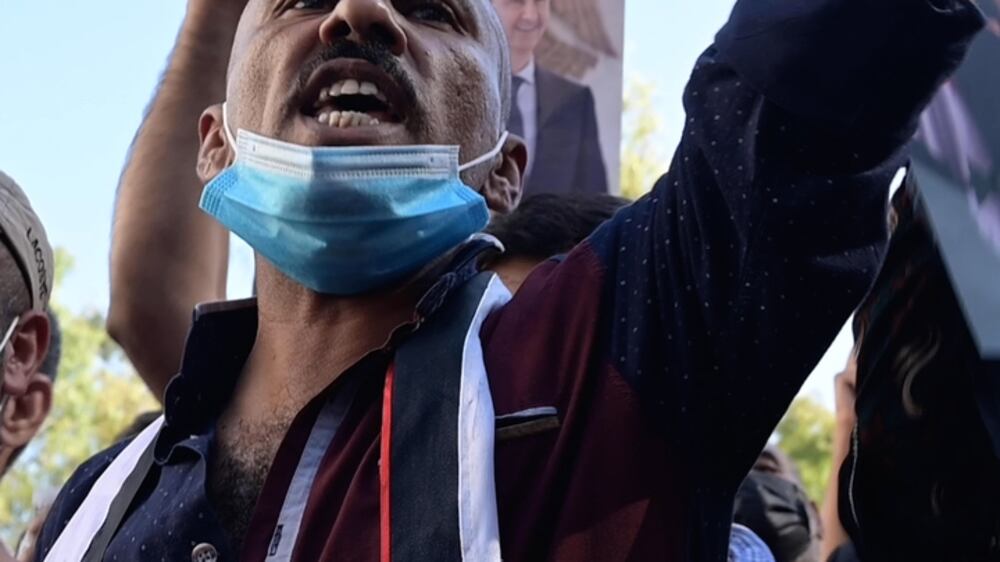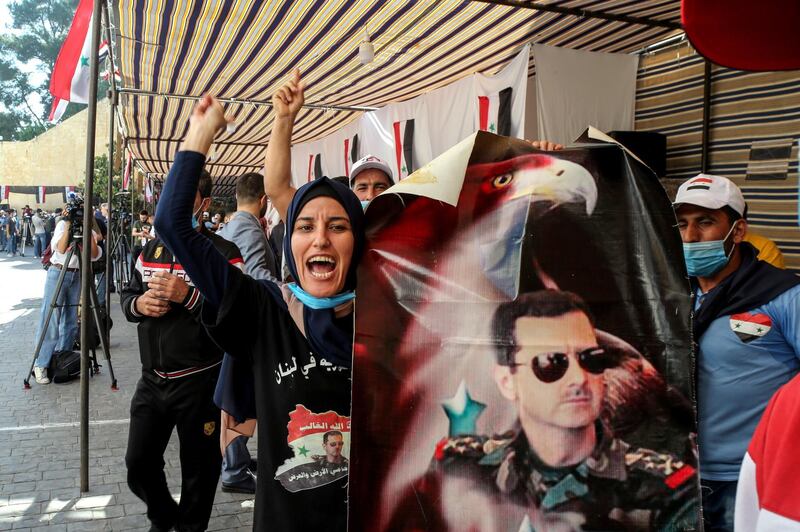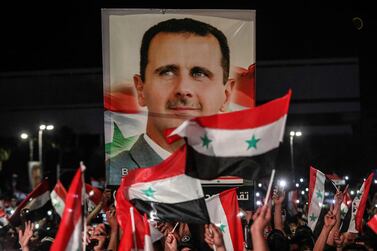The Syrian embassy in Beirut said it had compensated Syrians attacked while attempting to vote in Lebanon in last month’s election.
"We gave compensation to Syrians living in north Lebanon, the Bekaa region and the south yesterday and last week," Manal Ainmelk, press adviser at the Syrian embassy in Beirut, told The National.
Thousands of supporters of the Assad regime were attacked by mobs on May 20 as they went to cast their vote at the embassy in elections widely regarded as a sham show of loyalty to Syria’s President Bashar Al Assad.
Syrian expats vote early in Beirut for Presidential elections

The Syrian embassy did not specify how many people had received compensation in total, but said there were at least 50 cases in north Lebanon alone.
"We also helped them to fix the buses that were damaged," Ms Ainmelk told The National.
She added that financial help varied from case to case, starting at 1.5 million Lebanese pounds, or $115 dollars at the street value.
A number of vehicles plastered with images of Mr Al Assad were attacked as they passed through neighbourhoods known to be hostile to the Syrian government.
In one video posted to social media, a group of men were seen smashing the windows of cars carrying posters of Mr Al Assad.
The Lebanese Army was deployed to deal with the unrest.
Ms Ainmelk said among those who received financial support was the family of a 54-year-old Syrian man who died when the bus he was travelling on was attacked by a mob.
“The fright caused by the attacks caused the heart attack,” she said.
Mr Al Assad claimed victory in the election with 95.1 per cent of the vote, though the election was widely condemned by European and US officials, who said it threatened to undermine a UN peace process aimed at bringing the country’s decade-long civil war to an end.
Syrians in Lebanon voting for Mr Al Assad proved fiercely unpopular with some groups in Lebanon, which hosts more than 800,000 Syrian refugees and many more without refugee status.
Samir Geagea, who leads the Lebanese Forces, a Christian political party, said those voting for Mr Al Assad should be sent back to Syria, claiming they did not qualify as refugees.
Syria’s relationship with Beirut is fiercely controversial in Lebanon, with Damascus having militarily occupied its neighbour for 29 years, withdrawing only in 2005, following the assassination of former prime minister Rafik Hariri.







